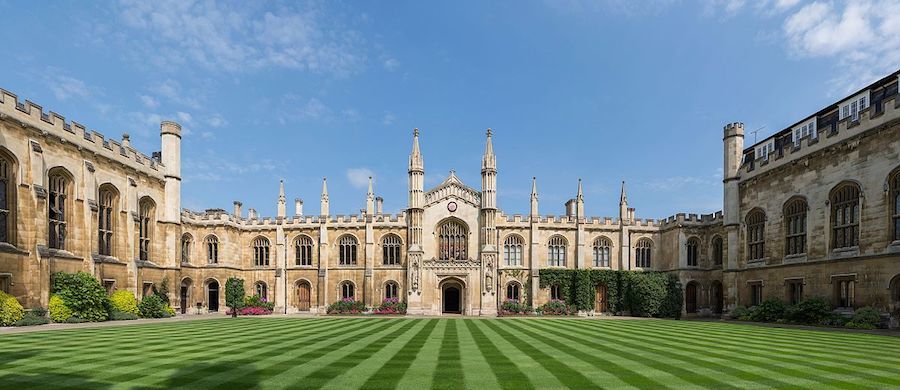Economists should stop pretending to be scientists and go back to the core of the discipline—as a field of inquiry and way of thinking
is Associate Editor and Chief Economics Commentator, Financial Times
Cross-posted from Institute for New Economic Thinking

“I think people in this country have had enough of experts.”
-Michael Gove
Michael Gove, winner of the Brexit referendum (though loser in the game of politics, having failed to become leader of his party, and so, maybe, no true expert either) hit the nail on the head. The people of this country have, it seems, had enough of those who consider themselves experts, in some domains. The implications of this rejection of experts seem enormous. That should be of particular significance for economists, because economists were, after all, the “experts” against whom Mr. Gove was inveighing.
Yet it is not really true that the people of this country have had enough of experts. When they fall ill, they still go to licensed doctors. When they fly, they trust qualified pilots. When they want a bridge, they call upon qualified engineers. Even today, in the supposed “post-fact” world, such people are almost universally recognized as experts.
So, maybe the proper distinction to be made is between “trustworthy” experts and “untrustworthy” ones. The question then become what makes experts trustworthy—not, I should stress, intrinsically trustworthy, but rather perceived by the public to be so.
One might make three, admittedly speculative, points about this distinction between experts deemed by the public to be deserving of trust and those who are not.
The first is that some forms of expertise appear simply to be more solidly based than others in a body of theory and/or evidence, with recognizable successes to their credit. By and large, doctors are associated with cures, pilots with keeping airplanes in the sky and engineers with bridges that stay up. Such successes—and there are many other comparable fields of expertise—self-evidently make people with the relevant expertise appear trustworthy.
The second is that some forms of expertise are more politically contentious than others. Nearly everybody, for example, agrees that curing people, flying airplanes and building bridges are good things. Social and political arrangements—and economics is inescapably about social and political arrangements—are always and everywhere contentious. They affect not only how people think the human world works, but also how it ought to work. These forms of expertise are about values.
The third point is that trust in expertise seems to be quite generally declining. This is partly perhaps because education is more widespread, which makes possession of an education appear in itself less authoritative. It is also partly because of the rapid dissemination of information. It is partly because of the easy formation of groups of the disaffected and dissemination of conspiracy theories. The internet and the new social media it has spawned have turned out to be powerful engines for the spreading of disinformation aimed at manipulation of the unwary.
It might be encouraging for economists that they are not the only experts who are mistrusted. Consider the anti-vaccination movement, hostility to evolutionary theory, or rejection of climate science. All these are the products of doubts fueled by a combination of core beliefs and suspicion of particular forms of expertise. The anti-vaccination movement is driven by parents’ concerns about their children. The hostility to evolution is driven by religion. The rejection of climate science is clearly driven by ideology. Every climate denier I know is a free marketeer. Is this an accident? No. The desire to believe in the free market creates an emotional justification for denying climate science. In principle, after all, belief in free markets and in the physics of the climate system have absolutely nothing to do with each other.
So economists are in good company with other forms of politically or socially contentious expertise. But they have a special difficulty. Not only are they engaged in an essentially controversial, because political, arena, and so also an inherently ideological one, but they suffer to a high degree from the first point I made above: their “science”, if science it is, just does not look to the public to be solidly based. It does not work as well as the public wants and economists have claimed. Economists claim a certain scientific status. But much of it looks to the outsider more like “scientism”—the use of an incomprehensible intellectual apparatus to obscure ignorance rather than reveal truth.
This does not mean that economists don’t know useful things. It is quite clear that they do. Markets are extraordinary institutions, for example. Economists’ elucidation of markets or of the principle of comparative advantage is a great intellectual achievement. Yet suspicion of economics and economists is both long-standing and understandable.
The problem became far more serious after the financial crisis. The popular perception is that the experts—macroeconomists and financial economists—did not appreciate the dangers before the event and did not understand the longer-run consequences after it. Moreover, the popular perception seems to be in large part correct. This has damaged the acceptance of the expertise of economists to a huge extent.
So how, in this suspicious contemporary environment, might economists persuade the public they are experts who deserve to be listened to?
I decided to ask my colleagues this question. One answered that:
1. Good economists have a clear (if incomplete) understanding of how the world works. This is a pre-requisite to making it a better place.
2. Economists have a sense of scale. They understand the difference between big and small and how to make that distinction. This is vital for policy.
3. Economics is all about counterfactuals. It understands the relevant comparators even if they are difficult to work out.
4. Economists are experts on incentives and motivations and empirically try to measure them rather than relying on wishful thinking.
5. Generally, good economists are expert in understanding the limits of their knowledge and forecasting abilities.
Another colleague added:
The general public usually associate economists with:
–A small set of macroeconomic forecasts (growth, inflation mainly), and
–A belief that markets always produce perfect outcomes
And they attribute failure to them if either:
–point forecasts (inevitably) prove wrong, or
–markets produce some bad outcomes
Whereas the expertise of economists is really in the building blocks that enable you to construct sensible forecasts and to understand how people are likely to behave and respond to a given set of circumstances/policies. This structure for understanding the world allows economists to take on board new developments, understand whether they reflect a rejection of their existing theories or merely a (possibly tail) outcome that was consistent with their “model,” and push forward their understanding of the world from there. Rather than throwing away all existing wisdom when circumstances change somewhat.
I agree with these propositions. Properly understood, economics remains very useful. One realizes this as soon as one is engaged with someone who knows nothing at all about the subject. But I still have four qualifications to make.
First, a large part of what economists actually do, namely forecasting, is not very soundly based. It would be a good idea if economists stated that loudly, strongly, and repeatedly. Indeed, there should be ceaseless public campaigning by the professional bodies, emphasizing what economists don’t know. Of course, that would not—as economists might predict—be in their interests.
Second, in important areas of supposed economic expertise, the analytical basis is really weak. This is true of the operation of the monetary and financial systems. It is also true of the determinants of economic growth.
Third, economists are not disinterested outsiders. They are part of the political process. It is crucial to remember that certain propositions favor the interests of powerful people and groups. Economists can find themselves easily captured by such groups. “Invisible hand” theorems are particularly open to such abuse.
Finally, the division between economic aspects of society and the rest is, in my view, analytically unsound. The relationship between, say, economics and sociology or anthropology is not like that between physics and chemistry. The latter rests upon the former. But economics and anthropology lie side by side. I increasingly feel that the educated economist, certainly those engaged in policy, must also understand political science, sociology, anthropology, and sociology. Otherwise, they will fail to understand what is actually happening.
If I am right, the challenge is not just to purify economics of exaggerated claims, though that is indeed needed. It is rather to recognize the limited scope of economic knowledge. This does not mean there is no such thing as economic expertise: there is. But its scope and generality are more limited than many suppose.
Michael Gove was wrong, in my view, about expertise applied in the Brexit debate. But he was not altogether wrong about the expertise of economists. If we were more humble and more honest, we might be better recognized as experts able to contribute to public debate.
With this in mind, what should be the goal of an education in economics at the university level? A part of the answer will come from developments within the field. In time, the incorporation of new ideas and techniques may make the academic discipline better at addressing the intellectual and policy challenges the world now confronts.
Another part of the answer, however, must come from asking what an undergraduate education ought to achieve. The answer should not be to produce apprentices in a highly technical and narrow discipline taught as a branch of applied mathematics. For the great majority of those who learn economics, what matters is appreciation of both a few core ideas and of the complexity of the economic reality.
At bottom, economics is a field of inquiry and a way of thinking. Among its valuable core concepts are: opportunity cost, marginal cost, rent, sunk costs, externalities, and effective demand. Economics also allows people to make at least some sense of debates on growth, taxation, monetary policy, economic development, inequality, and so forth.
It is unnecessary to possess a vast technical apparatus to understand these ideas. Indeed the technical apparatus can get in the way of such an understanding. Much of the understanding can also be acquired in a decent, but not inordinately technical, undergraduate education. That is what I was fortunate enough to acquire in my own years studying philosophy, politics and economics at Oxford in the late 1960s. Today, I believe, someone with my background in the humanities would never become an economist. I am absolutely sure I would not have done so. It might be arrogant to make this claim. But I think that would have been a pity—and not just for me.
In addition, it would be helpful to expose students to some of the heterodox alternatives to orthodox economics. This can only be selective. But exposure to the ideas of Hyman Minsky, for example, would be very helpful to anybody seeking to understand the macroeconomic implications of liberalized finance.
The teaching of economics to undergraduates must focus on core ideas, essential questions, and actual realities. Such a curriculum might not be the best way to produce candidates for PhD programs. So be it. The study of economics at university must not be seen through so narrow a lens. Its purpose is to produce people with a broad economic enlightenment. That is what the public debate needs. It is what education has to provide.



Be the first to comment